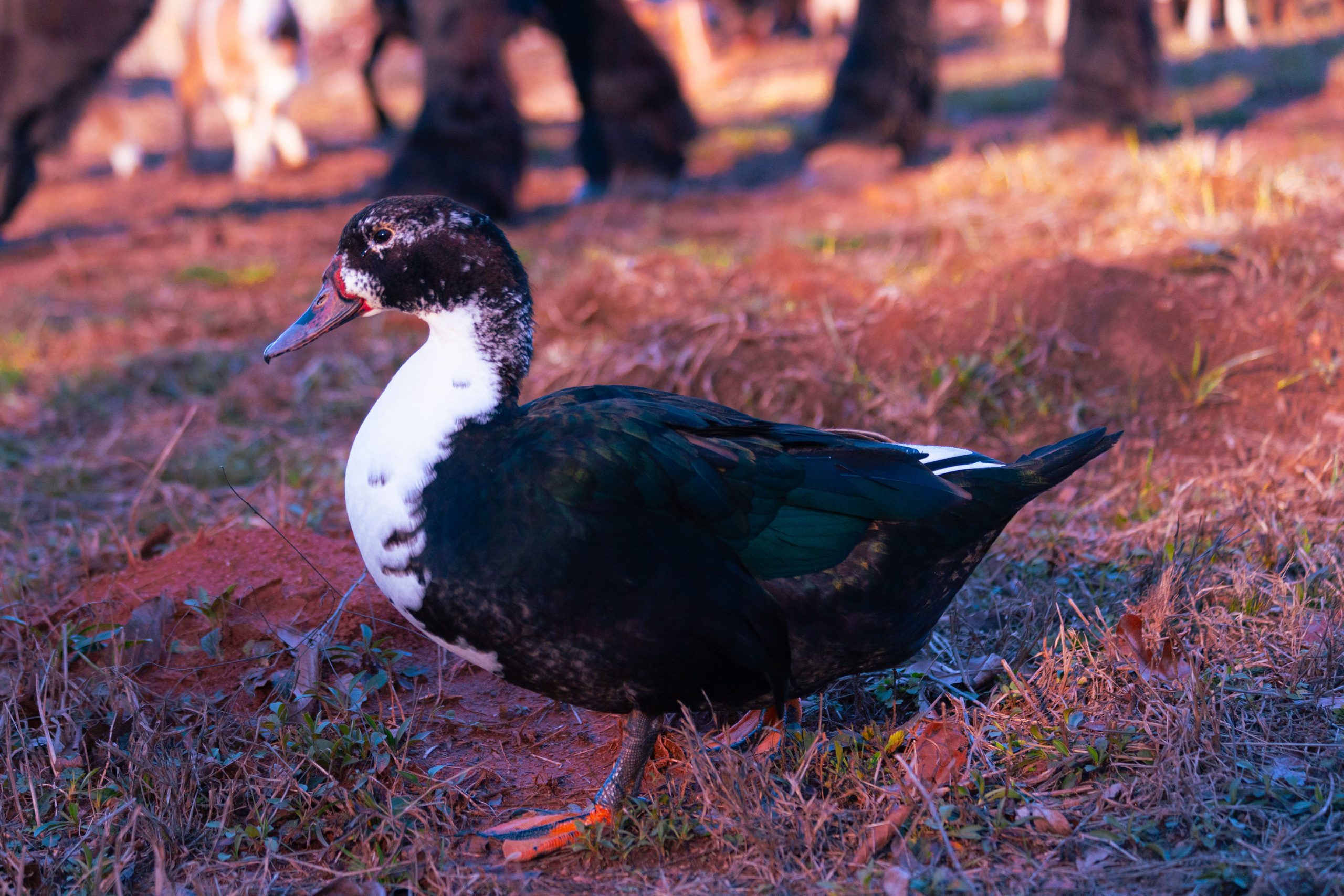If you’ve ever been curious about trying duck eggs, then this article is for you!
Side by side, the duck egg is about 30 % larger than a large chicken egg. Although larger, the general protein and fat in each is about the same relative to size. Long prized by chefs, duck eggs boast a richer, fattier flavor than chicken eggs. It is this rich fat that encourages more rising in baked goods, resulting in fluffy, rich convections!
With the popularity of homesteading and keeping livestock back on the rise, duck eggs are making a comeback to family tables. Duck eggs can be prepared the same way as chicken eggs, scrambled, fried, and added to any and every recipe calling for eggs. Duck eggs make fluffy sponge cakes, beautiful meringues, and cakes that stay moist! The albumen, or “egg white” of duck eggs is higher in protein than a chicken egg, lending itself well to gelling and foaming.
In America, most people have low levels of vitamin D. Many of us, including myself, have to take a daily supplement of Vitamin D. Responsible for calcium absorbtion and many other metabolic functions, a single duck egg contains about 10% of your daily value of Vitamin D. That’s impressive, especailly considering vitamin D also helps in happiness and mood regulation.

When it comes to Vitamin B12, a single duck egg has on average 90% of your daily value! B12 is responsible for red blood cell creation, nerve function, and the formation and preservation of our actual DNA! In contrast, a chicken egg only contains about 20% of your daily value of B12.
Duck eggs can be kept for up to 6 weeks in the fridge. They have harder shells, so can withstand a longer life on the shelf. If you’ve ever collected duck eggs, you may have noticed ducks are messy when it comes to their eggs. If they have a dry, clean nest to lay eggs everyday, of course the chance of messy eggs go down. However, ducks being the goofy creatures they are, can be notorious for laying their eggs in random places. Almost as if the duck was swimming when she felt the urge to lay, I have found eggs IN the pond, hidden under a barn, and most commonly, scattered randomly around the yard. Thankfully, since the ducks have harder eggshells than chickens, the eggs tend to be able to undergo lots more rough and tumble.
The best place to find duck eggs is from a local source. Just as with chicken eggs, duck eggs nutritionally are a blueprint of what the bird has been eating. Farm raised duck eggs can be found at most large chain grocery stores. Those ducks, however, were most likely fed a limited diet of pre-made feed. Ducks who have been allowed to wander the farmyard pick up what they search for, resulting in a much more well-rounded duck and egg. The more free ranging the bird does, the higher the amount of Omega 3 fatty acids present in the egg,
If you are considering adding some ducks to your place this spring, here are a few tips:
- Ducks do need constant access to water. As soon as a duckling hatches, it needs water to help it eat. When planning for future ducks, plan to give them somewhere with water deep enough to submerge their entire bills in.
- Ducks are cute! They will imprint on humans as ducklings and give their owners a bit more love and affection than chickens.
- Ducks are messy! They can’t help it, they just are! If you don’t mind a little mess and rinsing off eggs every once and while, they are for you!
Some of the best laying breeds of waterfowl that Hoover’s offers are the Ancona, Golden Cascade, Black Swedish, and Khaki Campbells.